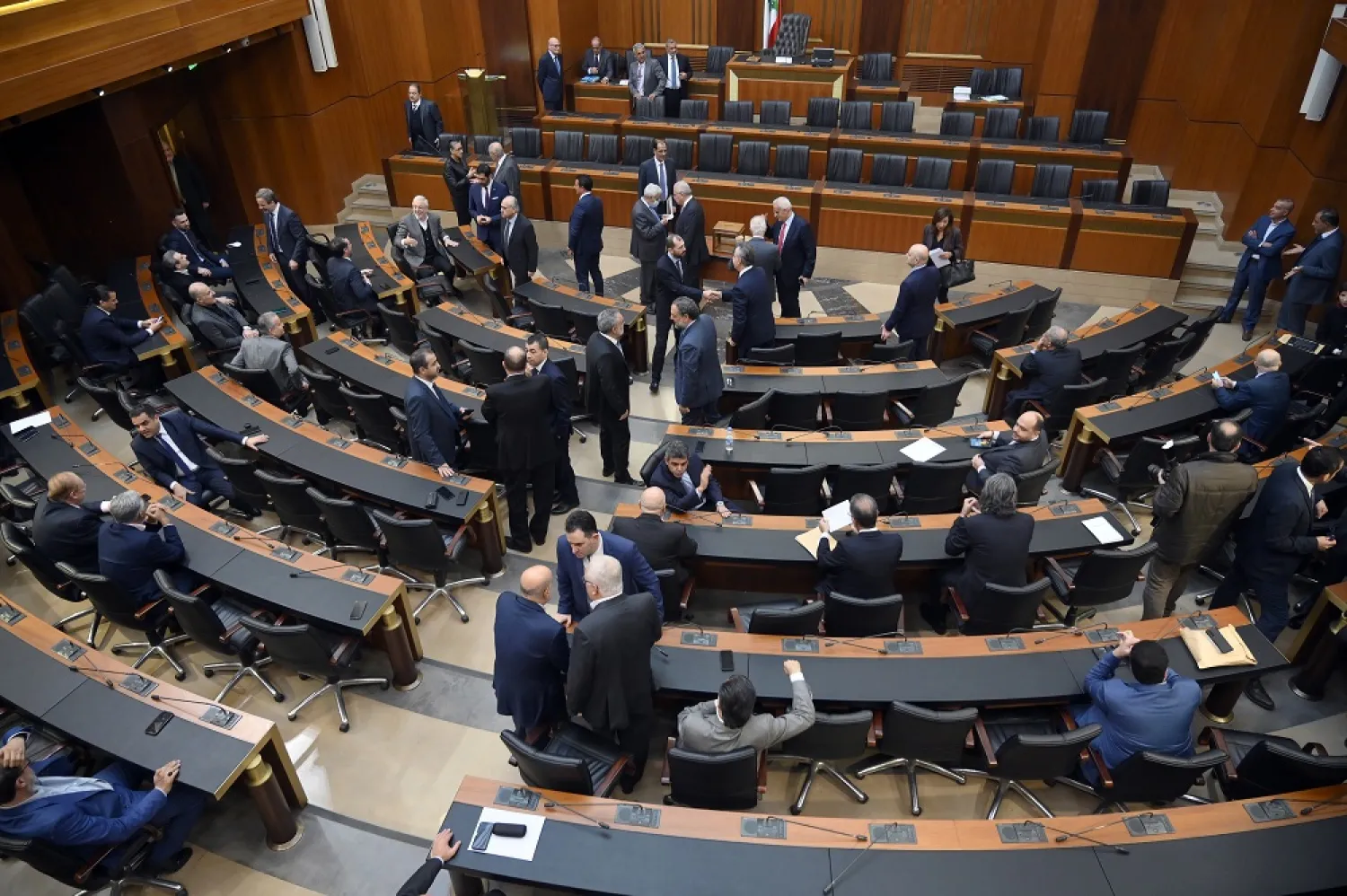It appears that the vacuum in the presidency in Lebanon will last several months given the lack of prospects for a local solution or a breakthrough in complicated regional files that will negatively impact the country.
Further aggravating the situation is the near collapse of the negotiations over Iran’s nuclear program, which is an omen that the crisis in Lebanon will become tied to international developments.
Lebanon has already held ten presidential elections sessions at parliament but no candidate has come out on top. Intense contacts have been held between local political powers to reach a breakthrough but they have come up empty.
Democratic Gathering MP Marwan Hamadeh told Asharq Al-Awsat that the internal and external conditions for the election of a president are “not ripe yet.”
The so-called document of presidential principles that head of the Free Patriotic Movement (FPM) MP Gebran Bassil is promoting is nothing more than an effort to prolong the Aounist grip on power, he said in reference to former President Michel Aoun and Bassil’s father-in-law.
Bassil is hoping to maintain the privileges that he acquired from the constitutional, judicial and military institutions during Aoun’s term, Hamadeh remarked.
Moreover, the running of several candidates is not a sign that a breakthrough is imminent, he added.
He said the various meetings between political powers, the most recent of which was the one between Bassil and Progressive Socialist Party leader Walid Jumblatt, will not lead to a breakthrough.
Instead, he noted that several pending disputes must be resolved, such as Hezbollah’s position in and ties to Lebanese society and the FPM’s relationship with other political powers.
Furthermore, there are several pressing questions that need to answered by the candidates, he went to say. “What is their position from the defense strategy that prevents Lebanon from again sliding towards civil war? Can the new president persuade Hezbollah to become part of the legitimate institutions, through political, parliamentary and social work?” he said.
“Is Hezbollah serious about stopping its violations against the state and in turn all other Lebanese segments?” he went on to say.
“This is impossible as long as Hezbollah’s decisions are taken by Tehran,” stressed the MP.
If Hezbollah does not change its approach, then the party will always use its superior strength to elect a president of its choosing and impose a prime minister and government that align with its views, added Hamadeh.
Hezbollah’s allies will retain the blocking third power in government and therefore, the paralysis at state institutions and judiciary will persist, warned the MP.
Furthermore, he said Lebanon must not rely on international efforts, especially those led by French President Emmanuel Macron, to help end the impasse.
“Macron cannot resolve the presidential vacuum by making statements or threatening to impose sanctions” against parties that are impeding the elections, continued Hamadeh.
“If major powers want to impose a solution in Lebanon, they can do so by delivering firm messages to Iran and force it to change its behavior,” he suggested.
He ruled out the possibility that they may resort to military force, saying that they may instead increase Iran’s international isolation or tighten sanctions and force it to cease its attacks on the region.
“Iran has for years been waging a war against neighboring countries similar to the war Russia is waging on Ukraine,” Hamadeh noted.
On Maronite Patriarch Beshara al-Rahi's call to hold an international conference to resolve the Lebanese crisis, the MP told Asharq Al-Awsat that the conditions to hold such a meeting are not available yet.
The fear however, lies in the possibility that a major security development may take place in Lebanon, forcing the conference to be held and Lebanese parties to attend in spite of their reservations, he warned.
He did agree with al-Rahi however, that Lebanon does need an international conference because “our country is facing a real existential threat.”
On reports that Hezbollah officials are preparing to hold meetings with Christian officials to help address differences, especially in wake of the party’s deteriorating ties with its ally, the FPM, Hamadeh said: “Hezbollah’s problem does not lie with the Christians alone, but with the majority of Lebanese society.”
“Even the vast majority of Shiites are upset with Hezbollah’s polices” that have sanctioned chaos and cross-border smuggling, most notably Captagon, he added.
There can be no sovereignty in Lebanon without reforms and without decision-making being restricted to the state and its legitimate institutions, he stressed.










